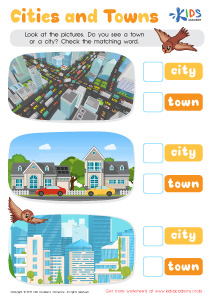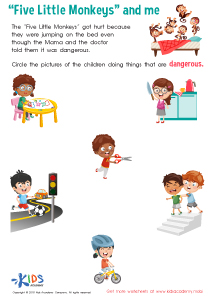Cognitive Development Easy Reading Comprehension Worksheets for Ages 3-7
4 filtered results
-
From - To
Unlock your child's potential with our Cognitive Development Easy Reading Comprehension Worksheets designed specifically for ages 3-7. These engaging and educational worksheets are crafted to enhance critical thinking, comprehension, and cognitive skills. Each activity encourages young learners to follow stories, understand sequences, and answer questions that develop early literacy. Colorful and fun illustrations make learning enjoyable, fostering a love for reading from an early age. Perfect for teachers and parents, our worksheets provide essential support for cognitive growth and academic success. Start building strong reading foundations today with our motivating printable worksheets. Visit us now to download!
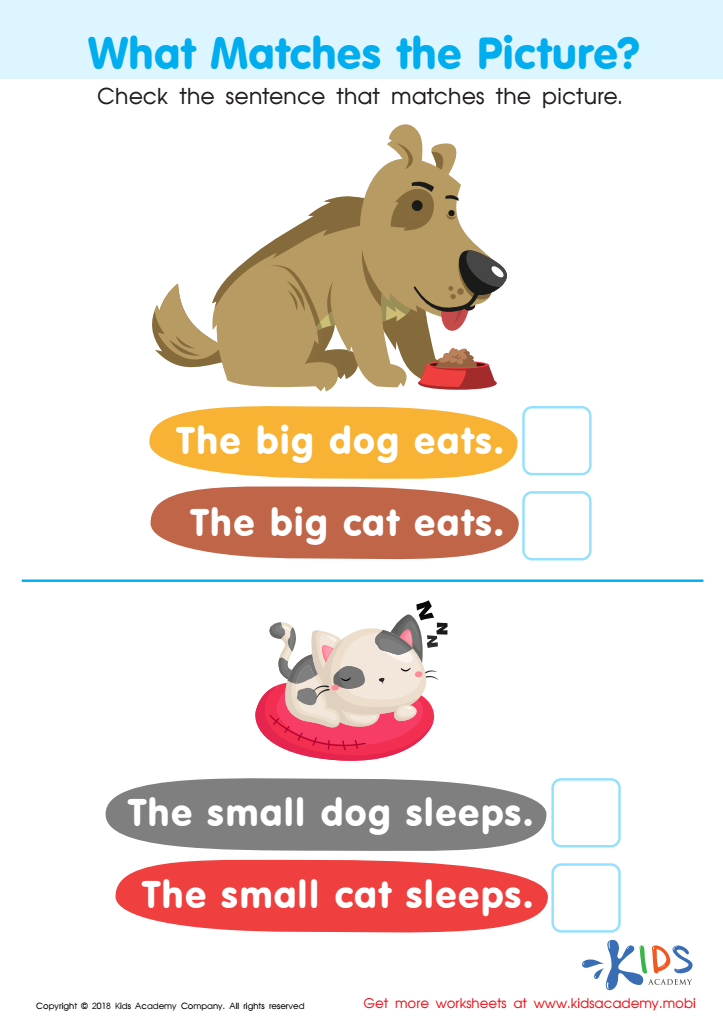

What Matches the Picture? Worksheet
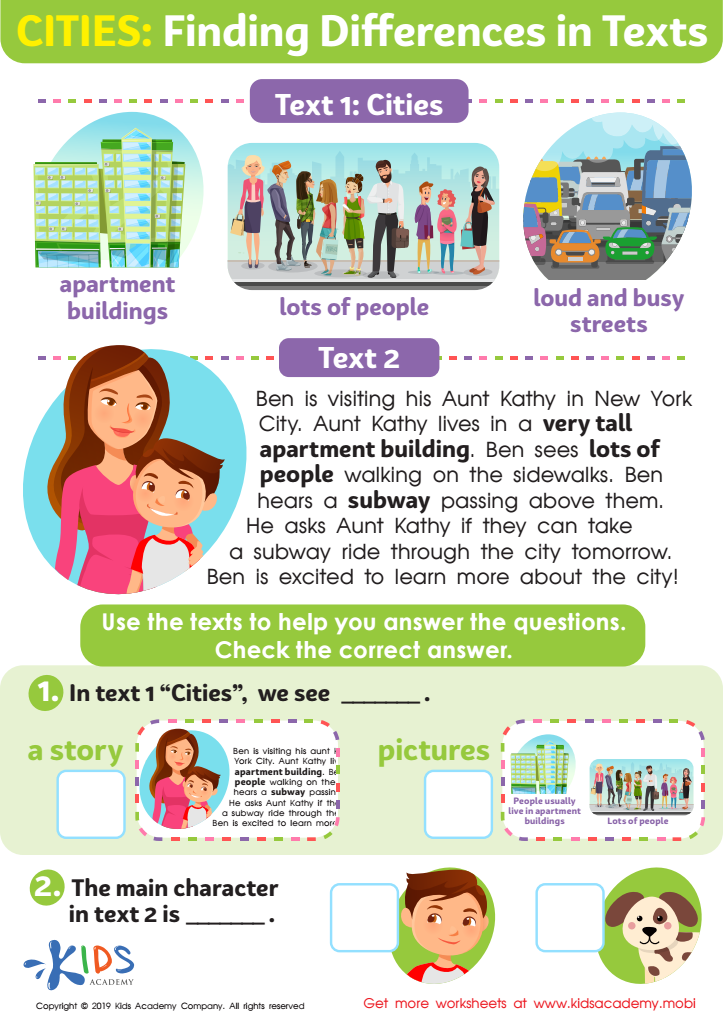

Cities: Finding Differences Worksheet
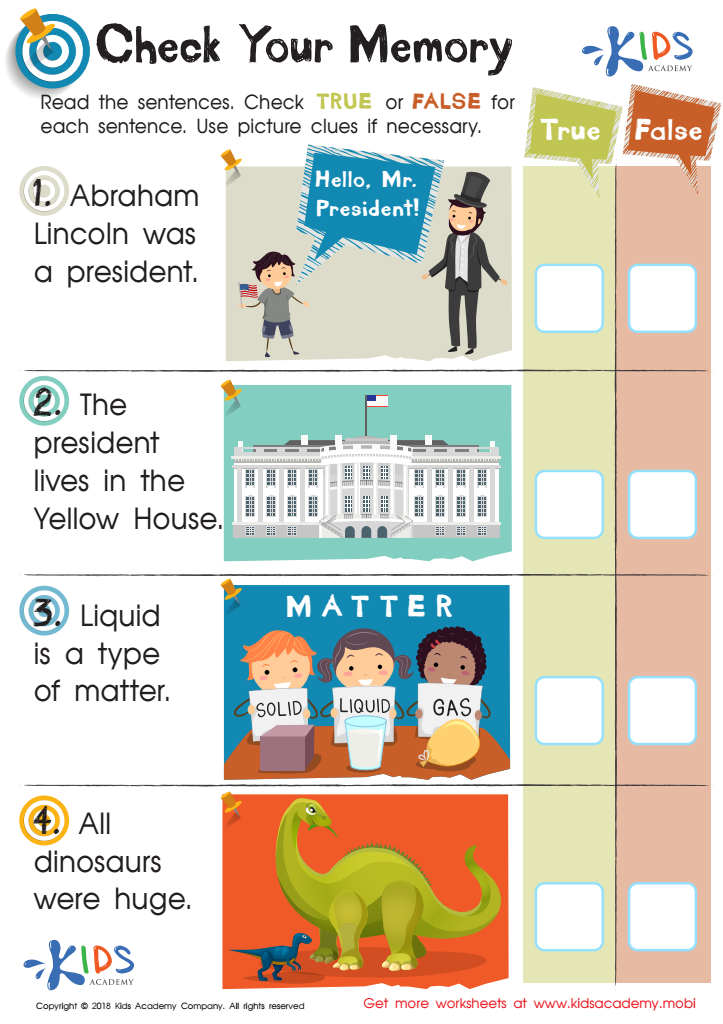

Check Memory Worksheet
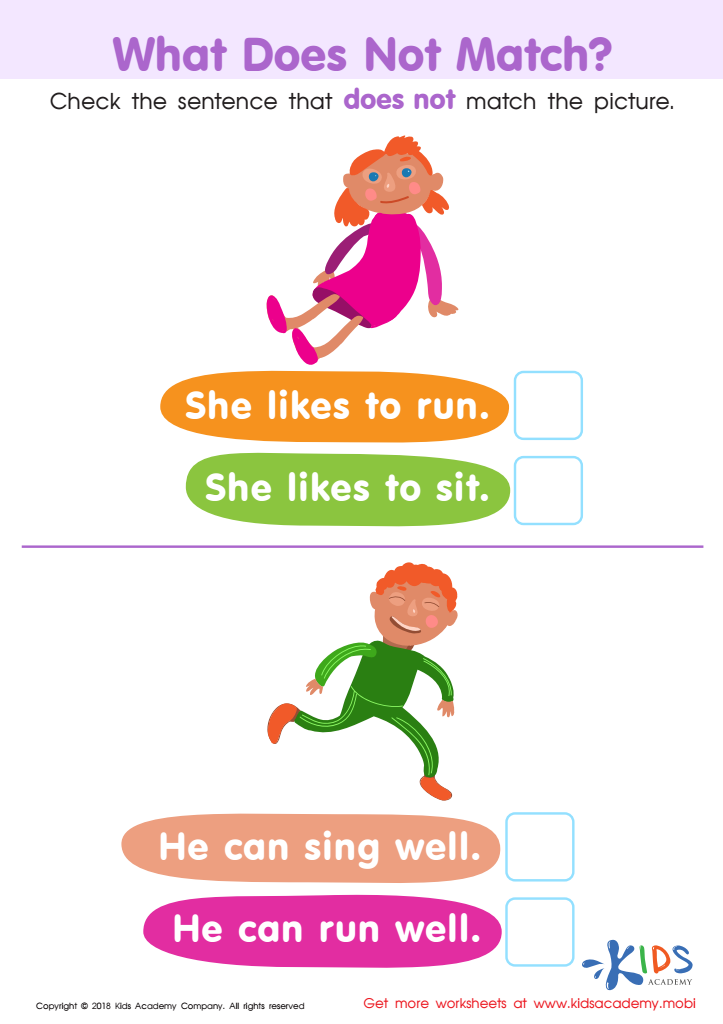

What Does Not Match? Worksheet
Children aged 3 to 7 are in a crucial period of cognitive development, where foundational skills are being formed that will impact their future learning and comprehension abilities. During these years, easy reading comprehension plays a critical role in shaping young minds.
Parents and teachers should prioritize cognitive development through simple reading materials because it helps build critical neural connections. Engaging with stories enhances vocabulary, language structure understanding, and auditory processing. Exposure to books fosters imagination and creativity, encouraging children to think beyond their immediate experiences. This is essential for developing problem-solving skills and cognitive flexibility.
Moreover, comprehension activities prompt children to recall facts, follow storylines, and make predictions, which bolsters memory and attention. Such exercises also introduce the concept of cause and effect, and relationships between characters and events, which are foundational for logical reasoning.
Crucially, early reading experiences help instill a love for books and learning. Positive early interactions with text can lead to sustained academic curiosity and resilience. By prioritizing cognitive development through age-appropriate reading, parents and teachers help set the stage for a child's future academic success and lifelong learning enthusiasm. Investing in these early years pays long-term dividends as children transition into more complex learning environments.
 Assign to My Students
Assign to My Students












